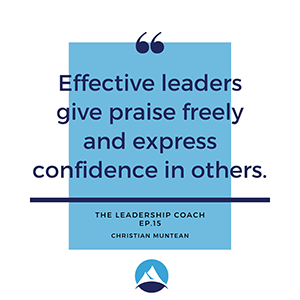Why An Exit Strategy Is Your Most Important Strategy For Growth


Originally posted by Forbes Council, Jan 14, 2020,07:00am EST
Are you curious about the value of your company? Try my free tool: The Value Builder System
A couple of friends of mine try to time the stock market. They are confident that they know the right stock and the right time to buy low or sell high. They all have one thing in common: None of them are making money from stocks. It’s just really hard to be Ray Dalio.
Business owners are similar. They often have all (or most) of their chips riding on one stock pick — their business. They will often say that they will plan to exit “when the time is right.”
That is the challenge: It’s difficult to time an exit. Only the rare owner will recognize and be ready for the “right time” when it appears.
Most Owners Miss The Timing
Most owners misread the timing of their actual exit, whether that is a sale or a transfer to family. Statistically, only 20-30% of businesses that try to sell ever find buyers. This failure rate is similar to the number of businesses that fail after a transfer of ownership to family or management.
Since these internal sales are usually owner financed, when the business goes down, the owner loses everything or has to get back in the business.
Most of these owners were focused on revenue, profits or cash flow. But they weren’t focused on building salable value in their business — salable value being the actual number someone will write on a check.
Many CPAs will give their clients an estimate of value based on recent profitability combined with a multiple that is usually pulled from thin air. But that number often has no relationship to whether or not a buyer (or the investors behind a buyer) will be interested, let alone what will appear on a check.
What this means is not only is it difficult to time the market, but most business owners don’t even know how to gauge the value of their business. They don’t know how to know if they are high or low.
What Most Owners Think
In practice, most owners base their timing on how they feel. They’ll often say, “When this stops being fun, I’ll sell.” Or “When I start to feel like this is more work than it’s worth, I’ll sell.”
A few moments thought about those statements brings clarity to the problem here:
• A business that isn’t fun is usually a business that is unprofitable and running poorly.
• A business that feels like more work than it is worth will look that way to a potential buyer too.
Some owners say, “When the right offer comes, I might think about exiting.” But:
• It’s very rare to receive a genuine “make me move” offer out of the blue.
• A buyer’s timing is rarely your timing.
• If you haven’t prepared, the buyer is usually in a position to dictate the terms (which usually include the owner becoming an employee for a number of years).
What Usually Happens
Most business owners will neither choose the timing nor the terms of their exit. What typically determines the timing and terms is:
• Health: A health issue for the owner commonly prompts an exit.
• Burnout: Many owners are tired. This is usually due to the business taking more than it gives.
• Family issues: A family member may become ill, the owner gets divorced — any family issue that requires relocation or diverts attention from the business.
• Disputes: Partnership or family disputes are common reasons for businesses to end or split.
• Death: No one avoids it, but most don’t plan well for it.
When your hand is forced in terms of timing, the terms are usually handed to you.
Additionally, most owners aren’t positioned to take advantage of unexpected opportunities. For example, a current trend is for large national companies to buy up small local businesses as part of their own growth strategy. Many owners aren’t ready when they come knocking.
Even when an owner sells, the process often takes far longer than expected, especially with the “earn-out” period of two to three years that most owners are required to accept to get the price they want.
Owners Can Control The Value Of Their Business
In fact, it is realistic for an owner to increase the salable value of their business by up to 300-500% in two to three years. There are nine value-building actions that can add this kind of salable value to a business:
1. Being able to operate independently of the owner.
2. Predictable and repeatable processes.
3. A strong management team.
4. Positive brand recognition.
5. Recurring revenue streams.
6. A proven growth trajectory.
7. Clean books.
8. Customer diversity.
9. Strategic or unique value.
A typical business won’t need to improve in all of these areas. Some of the most dramatic value comes from focusing on the first three.
A quick scan of this list should make it clear that value-building activities that prepare you for an exit are synonymous with the activities that create healthy and profitable businesses, right now. In other words, your exit strategy is ultimately the same thing as your current growth strategy.
If you actively build your business around value and not just revenue or profits, you are free to choose your timing and negotiate your terms because you’ll always be ready.
That’s why working on the business, not in the business, is so important for owners.
Think Short-Term For Your Exit Strategy
You may stay involved in your business for decades. But the work that you do today to build a valuable company will begin to pay dividends in the short term.
Don’t wait until you are ready to prepare your exit strategy. Build and act on your exit strategy now. It’s your path to growth.
Take good care,
Christian
Are you curious about the value of your company? Try my free tool: The Value Builder System
The Value Builder System™ is a 13-minute online questionnaire that evaluates your business on the eight factors that contribute more to its attractiveness and value. These factors are scored on a scale of 1-100. Businesses that score over 80 are likely to command 70%-100% higher value than others. Click here to learn more or get your free Value Builder Score.
Would you like my help for yourself, your team or board to get a clear vision of 2020? Don’t leave it to chance. Give me a call 907-522-7200 or e-mail me.
In my podcast, THE LEADERSHIP COACH, we explore effective, high impact and enjoyable leadership. We talk about personal development and the attributes that all effective leaders possess. I interview other leadership experts who share their knowledge and tips to help you build the confidence to lead and learn the habits of good decision-making.
Episode #15 is available now: Encouragement. The one thing that will Build Loyalty, Increase Morale and Improve Productivity.
Opportunities
Did someone send you this article? You can receive it, free, directly from me each week. Click here to sign up. You can unsubscribe at any time. I won’t feel too hurt.
Free Resource: How To Accomplish More Without Doing More is a workbook I created to walk leaders through a process of helping you own your calendar, liberate your time, and still get more done. Download it for free!
Executive and Leadership Coaching: Do you feel overwhelmed? Are you not getting the results you expect from the effort you are putting in? Do you find yourself facing similar challenges time and time again? Would you like to change specific ways of relating or reacting? If you would like to experience predictable, measurable growth Contact me.
Profitable Exit Strategy Workshop: Are you a business owner or partner? Are you over 55? Are you starting to think about exiting your business or active management in the next 3-5 years?
- Are you curious about what your business might be worth?
- Would you like to discover the specific steps you need to take to increase its value and become highly attractive to a buyer?
- Are you planning on handing it over to family or employees and you want to ensure long-term success?
If so, contact me now.
Categories
Get Christian’s Newest Book: Train to Lead

Download my free 10-page eBook:
How To Accomplish More Without Doing More:
Eight Proven Strategies To Change Your Life
Discover how to save eight hours during your workweek-even if you're too busy to even think about it. The resource every maxed out executive needs.
